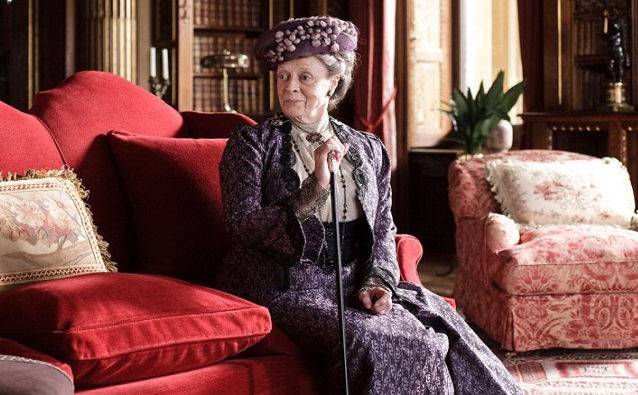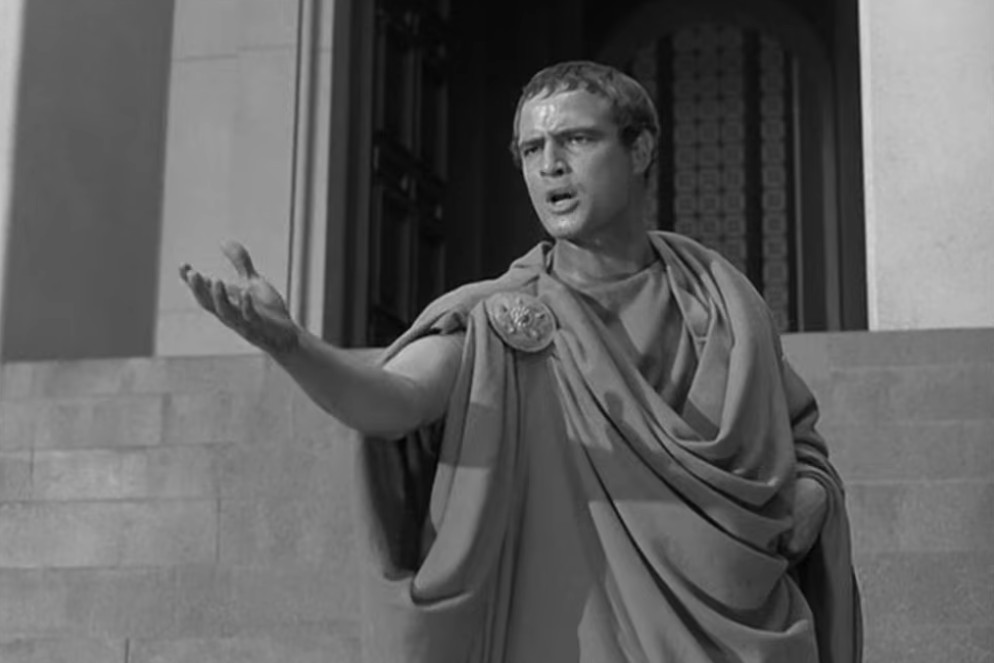Verbal irony is a wonderful rhetorical device you can use to sharpen your character’s tongues and refine their wit. In today’s world, irony permeates our common speech and even our idle thoughts. In this article, I will look at what defines verbal irony, its uses and dangers, and finally I will offer you a Story Weapon to sharpen your characters’ tongues.
Verbal irony—saying the opposite of what one means—adds wit, emotional distance, and character depth, but can also undermine sincerity if overused. Used thoughtfully, it becomes a powerful tool for persuasion, characterization, and shaping the tone of a scene.
What is “verbal irony”?
We can define verbal irony as language in which someone says something but means the exact opposite, usually to make a point or put a funny spin on the situation.
When there’s a sudden downpour, a character might comment, “Well, isn’t that great?” Or, say you’re traveling with someone from the South who gets cut off in traffic – instead of flipping the driver off, they say, “Bless their heart.” A bit of candy-flavored arsenic.
Why do we use verbal irony? For one, irony has entered the zeitgeist as a pseudo-intellectual game we all play. Some of us grow out of it as we get older. After all, who’s more ironic than a teenager? Unless, it’s Lady Violet Crawley from Downton Abbey.

Countess Violet: “You are quite wonderful the way you see room for improvement wherever you look. I never knew such reforming zeal.”
Mrs. Crawley: “I take that as a compliment.”
Countess Violet: “I must’ve said it wrong.”
Verbal irony allows for a certain amount of detachment in a situation. We’ve distanced ourselves from the moment by choosing to express not our first reaction, but our second.
“From even the greatest of horrors, irony is seldom absent.”
– H.P. Lovecraft
When to use verbal irony
Let’s say, for example, a character is bedridden with an illness and someone asks how they’re doing. They choose to respond with “never better.” Obviously, it’s a bit wry and charming. However, it also understates the emotion of the first reaction to that question, which would be “I’m doing poorly” or “I’m in a lot of pain.” Rather than feel that or share that with the other character, the bedridden person chooses to take another step away from it.
Verbal irony is not commonly expressed by young children. Typically, their reaction to a moment is inseparable from the moment itself. You might take them to Disneyland and they get scared of the giant mouse costume. There’s no way for a child to understand that there’s something going on there beyond the fear and surprise they felt. That moment is just that. In many ways, when we seek to return to a sense of childlike play, we’re talking about joy without the commentary on joy. It’s a raw feeling, rather than one that’s been parsed through a mental structure.
The key to verbal irony is detachment
As we get older, we have more experiences and we begin to understand the feeling of “sonder.” Sonder is the overwhelming feeling that arises when we apprehend that every person has a life as full and real as our own. Everyone is the main character in their own story, and we get to play a secondary role in their lives just as they do in ours. That might well be the first step to empathy.
Now that we have that understanding, we can understand that our situation and the emotions we have about our situation fit into a larger context. The bedridden character can think about all the other people in the hospital, many of whom are in worse conditions, and that adds to the ironic spin of “never better.”
The detachment that comes with verbal irony is a key part of employing it in dialogue.
If you have a character that’s constantly delivering little quips or sardonic opinions, they might be a bit jaded or hiding from their true emotions. Gallows humor is common amongst those who see dark things on a regular basis; it’s the only way to survive.
The dangers of verbal irony
When deciding which characters would use verbal irony in your story, consider this viewpoint from David Foster Wallace’s essay “E Unibus Pluram: Television and U.S. Fiction.”
. . . irony, entertaining as it is, serves an exclusively negative function. It’s critical and destructive, a ground-clearing. Surely this is the way our postmodern fathers saw it. But irony’s singularly unuseful when it comes to constructing anything to replace the hypocrisies it debunks. . . . Even gifted ironists work best in sound bites. I find them sort of wickedly fun to listen to at parties, but I always walk away feeling like I’ve had several radical surgical procedures. And as for actually driving cross-country with a gifted ironist, or sitting through a 300-page novel full of nothing but trendy sardonic exhaustion, one ends up feeling not only empty but somehow . . . oppressed.

Writing lines with verbal irony can be fun, but don’t go overboard. It dodges the emotion or undermines a situation, which can then undermine your character’s story arc.
To build something, to heal from the pain of an injury, a character needs to allow the pain and awkwardness to exist. They don’t get to crack wise if they’re going to get wise. The difference in these viewpoints is a great way to give your characters different voices.
Consider what might happen when three characters with varying approaches to verbal irony are put together. One might be cynical and hardened by the world, always quick with a quip. Another might be genuinely openhearted and innocent, unable either to conceive or even interpret another’s irony. And the third might be experienced in the ways of the world but they make the choice to be unironic when it matters. How do they grow and change when they interact with each other? Perhaps these are even the same character, just in different stages of their journey.
Verbal irony as a means of persuasion
Another way that verbal irony comes into play is in situations where one’s blatant truth or opinion cannot be expressed as it is, requiring the ironic spin to be palatable. There’s no better use of this than in Marc Antony’s monologue in Julius Caesar. Just moments before, Brutus has delivered a similar monologue of his own. He starts by addressing the “Romans, countrymen, and lovers” in the audience and sways the masses to his side. They’re even saying that Brutus, who killed Julius Caesar, should be the new Caesar. In this environment, where public opinion has been swayed against Julius Caesar, Marc Antony takes the pulpit.
He opens by clearly referencing Brutus’ speech, addressing the crowd as “Friends, Romans, countrymen.” Already, we get the sense that he’ll be mirroring Brutus in some way. Antony’s next words are “I come to bury Caesar, not to praise him.” This is a promise he makes to the audience to remind them that he’s on their side and not Caesar’s, though his later words will suggest differently. At this point, Shakespeare introduces a brilliant bit of language that gradually becomes more ironic as the monologue continues.

Antony repeats, throughout the monologue, the phrase “yet Brutus says he was ambitious; and Brutus is an honourable man.”
The first few times he says this, it’s played without an ironic edge to it. As the speech progresses, however, Antony reminds the audience of Caesar’s many victories. He reminds them that Caesar brought to Rome riches and military prisoners. He reminds them that Caesar refused the crown of king and that he cared a great deal for the poor in Rome. By the last refrain, Antony says “Yet Brutus says he was ambitious; and, sure, he is an honourable man.” That little addition of the word “sure” changes the whole tone of the line.
This is the strength of verbal irony. Antony couldn’t have taken the pulpit and revealed his true feelings. He chose to mask his rage behind careful language, slowly revealing to the crowd what he actually thought, and by the end of the speech, the audience turned to his favor.
Your story weapon: Use verbal irony sparingly
There are plenty of ways to employ verbal irony and it’s great fun to try your hand at it. Choosing how your characters use it is a great way to differentiate them from each other and connect their dialogue to their backstories.
Try to be sparing with your use of verbal irony and employ it with intention. Not every line has to be witty and it’s not always the smartest thing to say. It might be inappropriate for the situation or very appropriate. The only way to find out is to try.
What lies behind the detachment of your character’s verbal irony? Dig into their motivations and see how it plays into the themes of your story in one of my workshops: The 90-Day Novel, The 90-Day Memoir, Story Day






